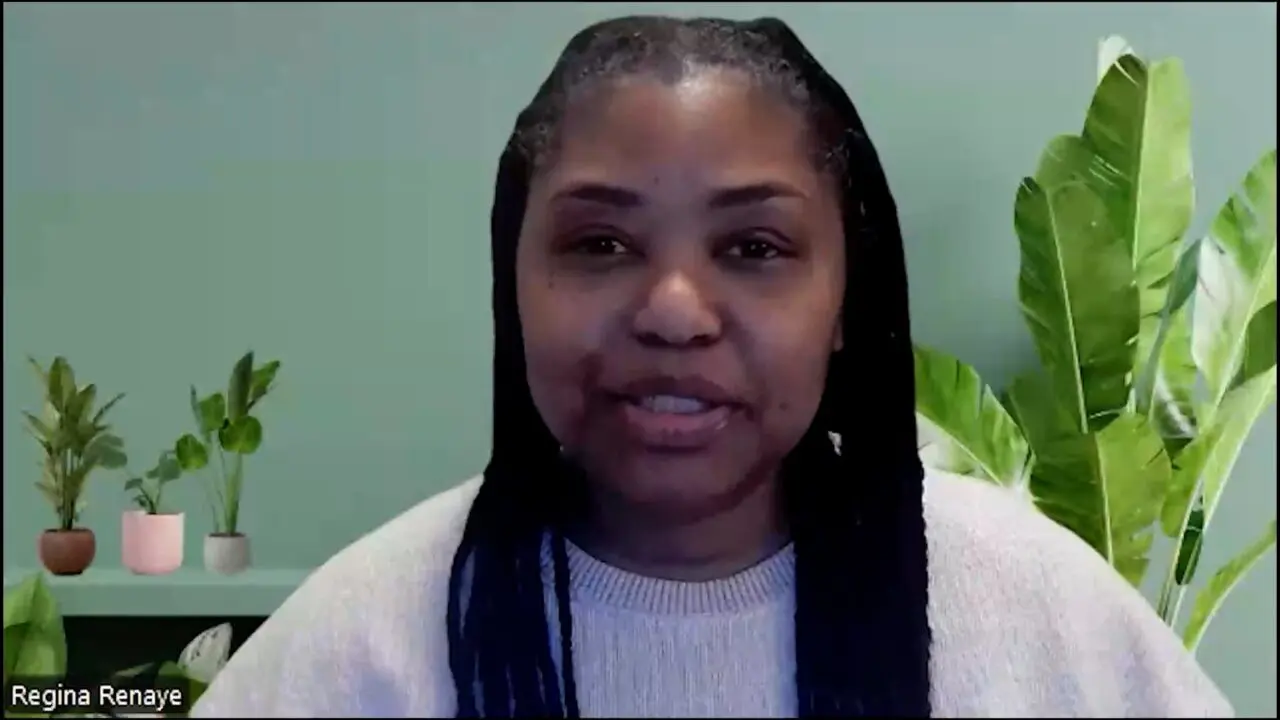DEAR MAN Skills
The “DEAR MAN” skills offer guidance on how to increase your assertiveness when asking for something, saying no, setting limits, or expressing yourself.
Stories

Anything medical ‑ I do not like. I will say "Ok" to things I don't like. I want to avoid conflict. So I say, "I feel [unheard], when you [are dismissive of my concerns]. I need [you to respect me and take me seriously]?

DEAR MAN is an incredibly useful skill that’s helped me express what I need clearly and respectfully in order to get the outcome that I want. The next time you need to set a boundary or ask for what you need, give dear man a try.

For me, I have a really hard time of hearing the noises of people eating. I find it really distressing.

I'm a chronic people pleaser, but I also have a lot of opinions and ideas, and it's really important to me to be seen and heard.
Community Tips
I was taught to not make eye contact with or say no to my superiors at work, to show respect. But, they keep putting me near the perfume department, even though it gives me headaches from allergies. I’m going to have to quit if things don’t change. I’ve been practicing DEAR MAN with my sister this DEAR MAN as a last ditch effort.
Ignoring attacks is so so hard, but I would have never thought of it or tried it without DEAR MAN. It helps keep me on track
I was super good at all the steps naturally, but I didn’t realize I was leaving out the most important part ‑ the Assert. It didn’t feel right at first, but it has really helped me get what I want with my parents. Not that I always get what I want now though.
Practice out loud. Seriously. Just do it.
For the REINFORCE step, most of the time when I’m asking for something, I just say I would really appreciate it if you helped me with this.
My tendency with Describe is that I want to include allllll the details, but instead my therapist suggests I focus on one main thing related to my goal. It’s a little less overwhelming that way I think.
Here’s the thing, when you start acting assertively using DEAR MAN, some people will be confused. Or even judgy and rude. Just know that it comes with the territory and ignore anything like this. Just stay focused on your goal of asking for what you want or saying no. The broken record comes in handy.
I was practicing this in the mirror for a scary talk with my brother. It says to have a confident voice. People have said my voice is quiet, so I recorded myself. It was really quiet. Then I started working on increasing it, until I didn’t sound like a mouse on the recording.
Why Use this Skill
Getting what you want within relationships can be tough. Being clear and explicit about what you want can be super tricky, especially if you struggle with people-pleasing or if you’ve never been taught communication skills. DEAR MAN provides concrete suggestions for how to assert yourself, hopefully making it a bit easier.
When to Use This Skill
Use DEAR MAN when:
- You want to ask for something or say “no”.
- You want to say “no” to someone else’s request.
- You want to express your beliefs or feelings.
- You want to set interpersonal limits or discuss boundaries.

Overview Video
UrsulaHow to Use This Skill
The “DEAR” skills offer advice for what to say to someone when you’re asserting yourself.
The “MAN” skills offer advice for how to say your DEAR script, so that you’re more likely to get what you want.
We’ll walk through each below.
DEAR is a set of skills that you can use like a script:
- Describe the situation briefly, so that the other person understands what the conversation is about. You can remind the other person what recently happened between you, what the current situation is that’s driving your request, or whatever else you think they need to know to understand what you’re actually asserting.
“This morning, you went to the grocery store without taking the grocery list.”
- Explain how you feel about the situation and your assert. What emotions are you feeling? Why is this situation, boundary, request, or “no” important to you? Briefly tell the other person.
“I appreciate you going shopping, but I’m frustrated, because we have things on the list that we need for dinner tonight, and now one of us has to go back to the store to get them.”
- Assert yourself, asking for what you want specifically, saying “no” explicitly, or clearly stating your opinion. Don’t assume the other person knows what you want just because you’ve explained how you feel!
“Next time you go grocery shopping, could you please take the list, or at least check-in with me before you leave?”
- Reinforce the person for considering your request, respecting your decline, or listening to what you have to say. You can always just say “thank you,” but mention if there’s something else specific that makes it worthwhile for the person to give you what you want. (This isn’t about manipulation as much as considering the other person’s point of view or expressing appreciation, in line with the GIVE skills.)
“I would really appreciate it, and it would save both of us precious time—I know you are just as busy as I am!”
You can use the DEAR guidelines exactly to write out a script of what to say, but feel free to change the order of DEAR to suit your needs and style. For example, Describe and Explain may not always be relevant, like when you assert a boundary immediately in response to someone’s unwanted behavior in real-time.
MAN is a set of skills that can help you increase your assertiveness:
- Stay Mindful of your goals (e.g., your “Assert”). If the other person brings up other topics, threatens you, or expresses judgment, ignore it. Bring it back to your request/desire, gently and repeatedly. Be a “broken record.”
- Appear Confident when asserting yourself. Speak clearly and loud enough so the other person can hear you. Try to use confident body language: face the person, uncross your arms, and don’t look at the ground. Calmly ask for time to think or decide, as much as you need to.
- Negotiate with the person if you just can’t agree. Be prepared going into the conversation with an idea of what you may give to get, or how you may be able to flex or change your assert, based on the other person’s situation. Ask the other person what they think you both should do, given what your needs or limits are.
Remember that the DEAR MAN skills are just suggestions. While these tips can definitely help people improve their assertiveness, not all of these tips may be appropriate for your situation, culture, or neurotype. Use them as inspiration!
Resources
“A DBT Skill for Overcoming People‑Pleasing Fear”
An article about how to use the DBT "Dime Game" skill when you struggle with people‑pleasing, by Dr. Kiki Fehling
DEAR MAN guide
An article that lists goals and examples of the DEAR MAN skill from the DBT self help website
DEAR MAN Practice Ideas
A list of ways to practice the DEAR MAN skill in real life settings, from DBT therapist Amanda Smith
Video on DEAR MAN
A YouTube video that explains how to use the DEAR MAN skillset to communicate assertively
Related Skills
Storytelling
Tell your story to understand yourself and connect with others.
Caring Messages
Connect with and help others with brief messages.
GIVE Skills
Improve your relationships and ease conflict.
FAST Skills
Increase your self‑respect within relationships.